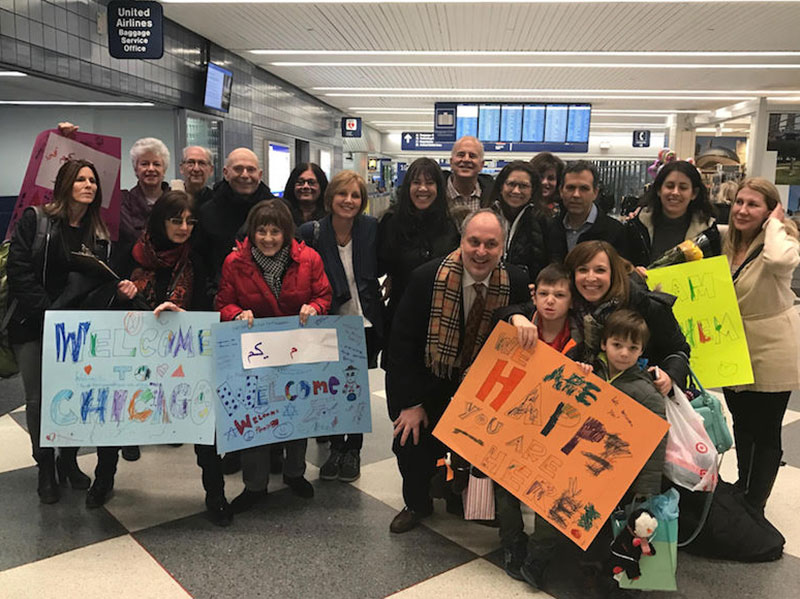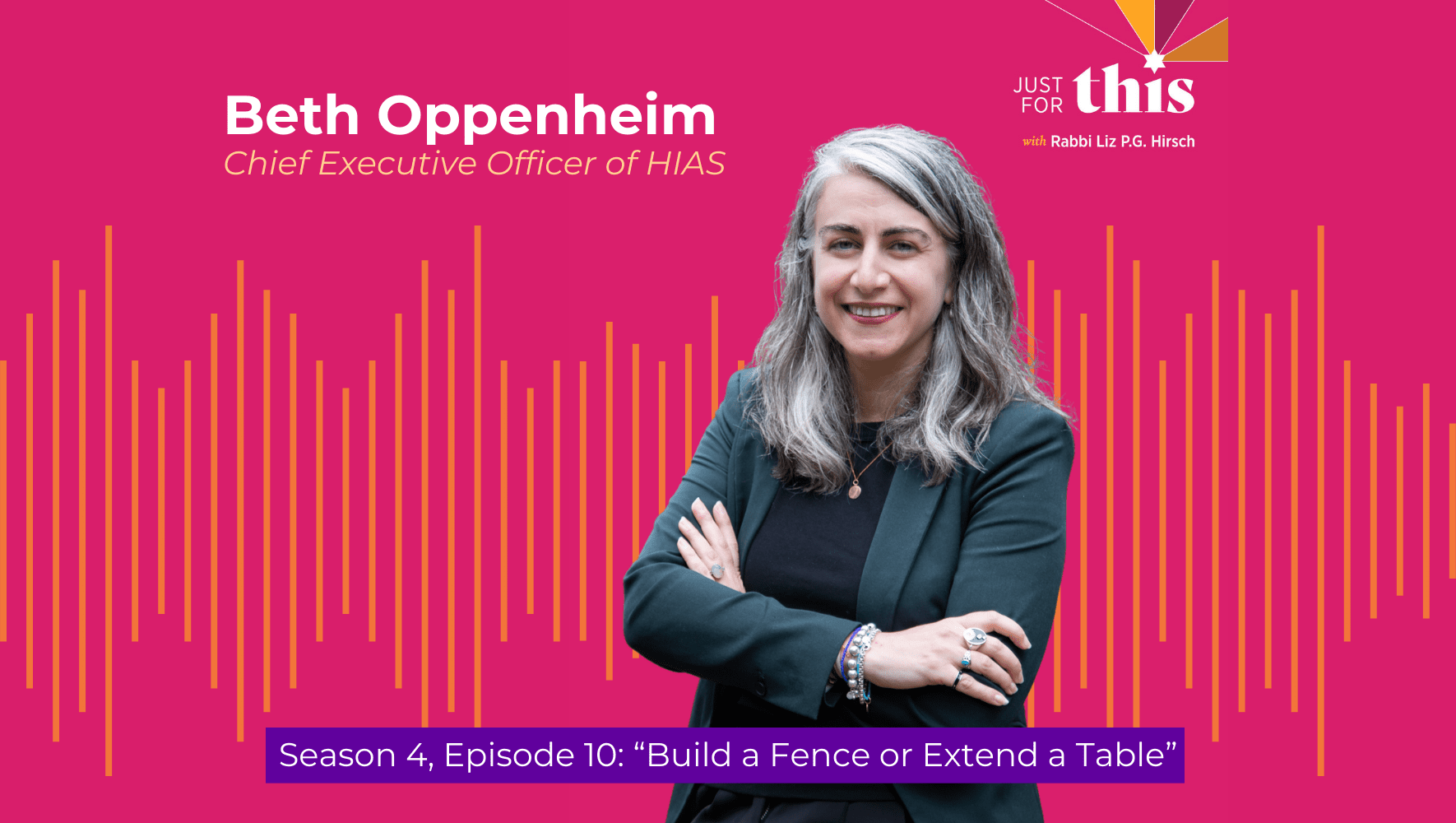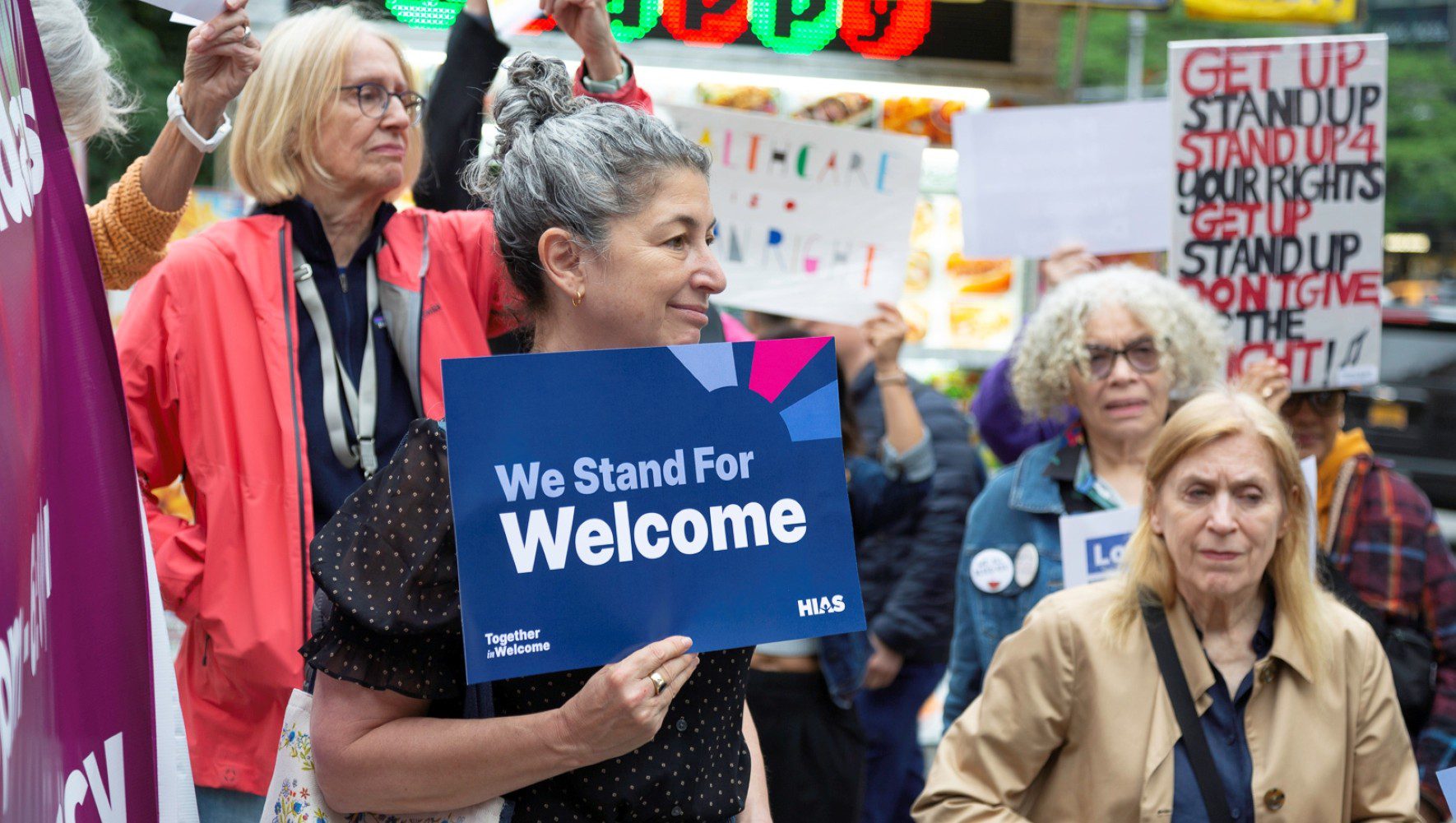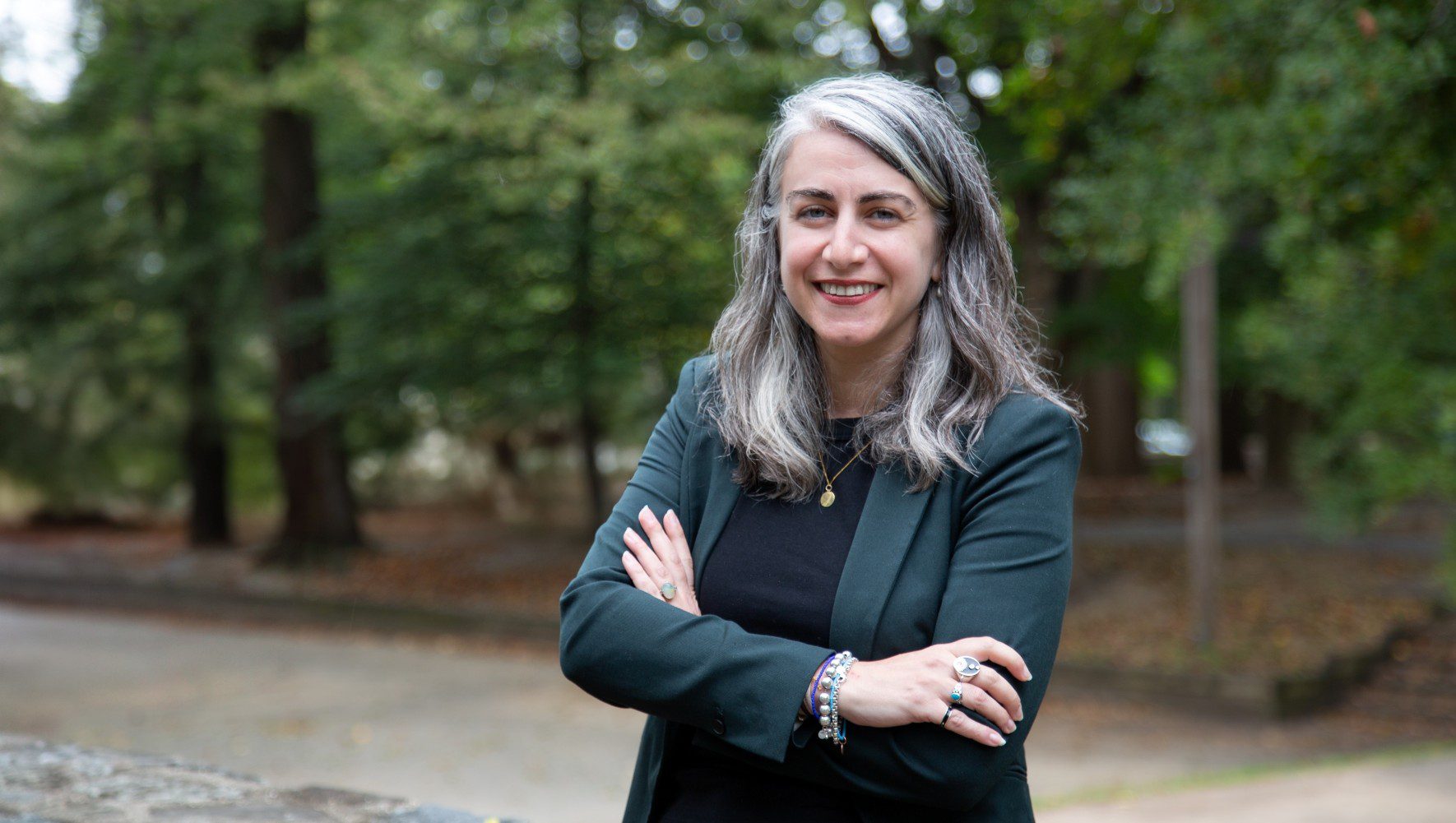Refugee Ban Rattles Jewish Community Volunteers
By Rachel Nusbaum, HIAS.org
Feb 02, 2017

Members of Am Shalom welcoming a Syrian refugee family at O’Hare International Airport in Chicago, Jan. 27, 2017.
(Courtesy of Am Shalom)
"Shock would not be the right word," Rabbi Jonathan Blake told The Journal News.
His congregation, Westchester Reform Temple in Scarsdale, had been part of a community-wide effort in Westchester County to begin welcoming resettled Syrian refugees to the area in partnership with agencies like HIAS. They had been preparing since the summer for refugees who would, it seemed, no longer be coming.
“For the people who have been involved in the effort, I would say the majority feeling was disappointment, anger, a feeling that this action was based on feelings and fears and not facts," Blake said.
For Rabbi Howard Goldsmith, the sudden slamming of America’s doors meant that he would be unable to “pay forward” the help his own grandparents received after fleeing Nazi Germany, as he wrote in an op-ed. His synagogue, Congregation Emanu-El of Westchester, was eagerly preparing to welcome a family of Syrian refugees before the ban. Goldsmith writes:
“We held numerous meetings, worked through a screening process, and ensured that we’d have the resources necessary to properly welcome a family. With eight volunteer committees staffed by over 45 committed congregants, we were ready to go, ready to pay forward the kindness received by my grandparents and so many others throughout our nation’s history.”
But with the executive order, he said, “our work ground to a halt. Months of preparation and commitment made moot with the stroke of a pen.”
Congregation Beth El in South Orange, New Jersey had also been preparing to welcome a refugee family. A small group of Congregants went to Newark airport to welcome the new arrivals – not knowing at the time that they might be some of the last Syrian arrivals to the United States despite a devastating civil war and a recent push by President Obama to welcome more Syrians.
“They got here in the nick of time,” Rabbi Jesse Olitzky told Haaretz.
Similarly, 20 members of Am Shalom, a Chicago-area Reform synagogue, gathered at O’Hare International Airport on Friday, January 27, to take in a Syrian family of four just before the order was signed.
“We firmly believe our mission is to love the stranger and to welcome the stranger,” Rabbi Steven Lowenstein of Am Shalom, told JTA. “We were strangers once, and so many of our congregants can trace their roots to being refugees right in this country. It was very clear to us that this is what we as Jews, we as human beings needed to do.”
Volunteers at Temple Jeremiah in Northfield, Illinois were also caught off guard by the order. They had “been preparing since last fall to welcome a pair of refugee sisters from Congo,” reported CBS Chicago.
After an extensive vetting process, the girls were finally cleared to arrive this past weekend. Then, the executive order on refugees threatened to upend their travel. The Temple Jeremiah volunteers showed CBS News the warehouse full of supplies they had collected to make sure the sisters felt at home from the moment they arrived. [Watch that story here.]
For several days, no one knew what would happen. It seemed that the sisters might be caught up, like so many others, in the chaotic implementation of the sudden ban.
After a tense few days, there was good news. It seemed the sisters would be allowed to come to their new home after all. They arrived in Chicago on February 1, to the delight of all involved.
Many other communities, most of which are active members of the HIAS Welcome Campaign, are still unsure what will become of the homes they worked so hard to build.
As Rabbi Goldsmith wrote, “we only wanted to do our small part for the international refugee crisis. We wanted to alleviate that horror for at least one family fleeing a war-torn region.”
He leaves us with an important question: “How will history judge us?”



